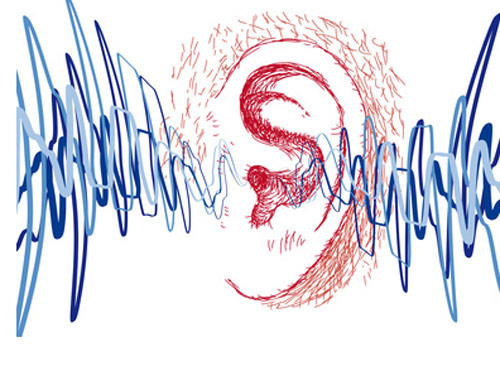
Two European companies focused on hearing loss solutions and therapies –Sensorion and Sonova– will partner to carry out a large long-term study of the genetics of hearing loss.
The study will be a continuation of a collaborative partnership started in December 2020 when Swiss audiology tech firm Sonova invested $5.9M in French biotech Sensorion (3.7% company stake) with a view to developing new treatments for hearing loss together, a focus for the biotech.
The natural history study will follow a group of people, recruited while attending Sonova’s Audiological Care stores for early-onset age related hearing loss (presbycusis), who will undergo genotyping to search for gene variants linked to hearing loss. These will include those in the gene GJB2, defects in which are one of the most common causes of congenital deafness. The study will also look for mutations that influence severity and speed of hearing loss progression.
“The aim of this joint project is to explore synergies between two approaches of hearing healthcare, traditional hearing care and emerging bio-pharmaceutical approaches which we believe will be largely complementary. By actively participating in this study on screening of genetic predispositions leading to hearing loss, we will learn about potential new diagnostic procedures as well as how Sonova can contribute and benefit from these new emerging technologies in hearing care,” said Arnd Kaldowski, CEO of Sonova, in a press statement.
Presbycusis is a common disorder, affecting two-thirds of Americans over the age of 70, which is thought to be due to multiple causes. While genetics is known to play a role, other factors such as environmental factors can also strongly influence whether someone develops it.
Sensorion is one of several companies developing gene therapies to target hearing loss. It has three programs, currently at the preclinical stage targeting inherited deafness caused by a mutation of the OTOF and GJB2 genes as well as targeting Usher Syndrome Type 1. Other examples include Decibel Therapeutics and Otonomy, which are both testing adeno-associated virus gene therapies to treat inherited hearing loss.
Having additional knowledge of the genetics of hearing disorders such as presbycusis can be crucially important for development of new gene therapies, but also to help find targets for more traditional drug therapies, which Sensorion is also developing.
“Inherited factors contribute to the incidence, severity and rate of progression of hearing loss in the general adult population… Our collaboration keeps Sensorion at the cutting edge of hearing loss development by adding to our growing understanding of the ways gene therapy can help fill unmet medical needs beyond childhood and congenital deafness,” said Nawal Ouzren, CEO of Sensorion.
Not many details of the study have been released as yet, but it is expected to include a cohort of “thousands” and the two companies are spending just over $8M on setting up, running and completing the study with Sonova contributing 70% and Sensorion 30% of the costs.











